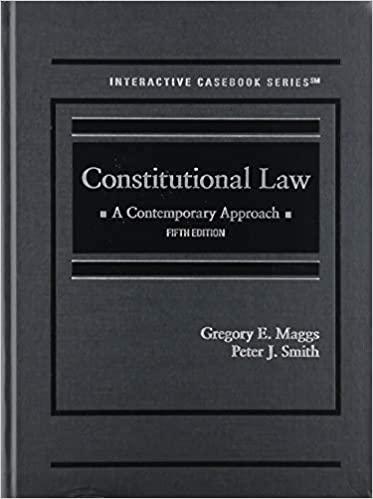Question
The New York Times appealed to the Supreme Court against appellee L.B. Sullivan. In 1960, Montgomery's police commissioner, L.B. Sullivan (plaintiff), sued the New York
The New York Times appealed to the Supreme Court against appellee L.B. Sullivan.In 1960, Montgomery's police commissioner, L.B. Sullivan (plaintiff), sued the New York Times (defendant) in trial court for ruining his reputation through an ad posted about Montgomery's police and civil rights protestors. This advertisement was written and paid for by civil rights activists describing statements and accusations against the Montgomery police, claiming assault, destruction of property, and unjust arrest of Dr. Martin Luther King. Yet some things in the ad weren't true. Although Sullivan was not named in the advertisement, he claimed that it ruined his reputation under libel per se. The appellant argues that this advertisement is protected under the First Amendment.
Does the First Amendment protect those who criticize public officials? why?
Step by Step Solution
There are 3 Steps involved in it
Step: 1

Get Instant Access to Expert-Tailored Solutions
See step-by-step solutions with expert insights and AI powered tools for academic success
Step: 2

Step: 3

Ace Your Homework with AI
Get the answers you need in no time with our AI-driven, step-by-step assistance
Get Started


